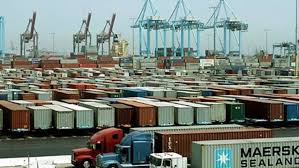Beyond bombastic diplomatic language, the unexpected onset of the Covid-19 health crisis is just the hidden face of a tumultuous relationship that resulted in the suspension of the Economic Partnership Agreements (EPAs).
Six years after the signing of the Economic Partnership Agreements between the European Union (EU) and Cameroon, the skies have often been cloudy between the two partners regardless of the fact that diplomacy has always been in charge of smoothing the angles. The machine has really seized up in the light of the 5th phase of the EPAs which should have entered into force on August 4, 2020. An extension at the request of Cameroon which was based on article 31 of the Agreement which provides for suspension possibilities.
Despite this valid reason linked to the Coronavirus pandemic which is seriously impacting economic activities, the EU protested strongly not only because there were stumbling blocks on “the accompanying measures to promote an increase quantitative and qualitative goods and services produced and exported by Cameroon ”but also because“ this request has reached us in coincidence with the letter from the government which informed us of the temporary suspension of the implementation of the EPA ”, specifies the EU.
In other words, the European Union considers that Cameroon is using the Covid-19 as a pretext to undermine the implementation of the EPAs, the 4th phase of which should end on August 3, 2020. Pushed into these last entrenchments, Cameroon invoked Article 57 of the 1969 Vienna Convention on International Treaties, relating to cases of force majeure. On the basis of this provision, a contracting party may partially or totally suspend the application of an Agreement.
Cameroon, of which the European Union is the first economic partner, was almost forced to suspend this agreement, given that the extra-community barriers have been closed since last March due to Covid-19. Moreover, the EU is both the country’s leading partner for imports (35%) and for its exports (46%). In 2019, Cameroonian exports to the European Union amounted to 1400 billion FCFA while imports peaked at 1000 billion FCFA.
According to sources, the dismantling of customs barriers under the EPAs should resume on January 1, 2021. Despite these upheavals, “the Cameroon-European Union relationship remains cordial,” observers say. Last July, the Cameroonian government presented a support plan estimated at 607.63 million euros (398.6 billion FCFA), aimed in particular at improving the business environment, promoting integration and the implementation of the EPA.



